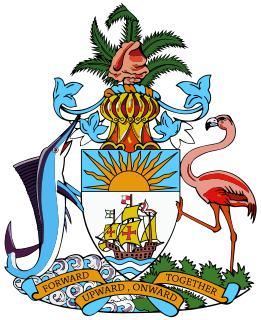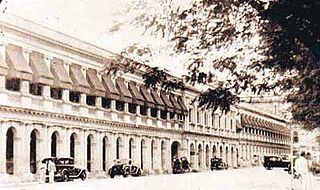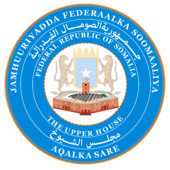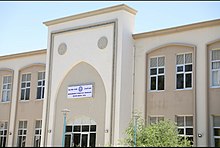
The House of Commons of Canada is the lower house of the Parliament of Canada. Together with the Crown and the Senate of Canada, they comprise the bicameral legislature of Canada.

The Parliament of Canada (French: Parlement du Canada is the federal legislature of Canada, seated at Parliament Hill in Ottawa, and is composed of three parts: the monarch, the Senate, and the House of Commons. By constitutional convention, the House of Commons is dominant, with the Senate rarely opposing its will. The Senate reviews legislation from a less partisan standpoint and may initiate certain bills. The monarch or her representative, normally the governor general, provides royal assent to make bills into law.

The Senate of Canada is the upper house of the Parliament of Canada. Together with the Crown and the House of Commons, they comprise the bicameral legislature of Canada.
Acts of parliament, sometimes referred to as primary legislation, are texts of law passed by the legislative body of a jurisdiction. In most countries with a parliamentary system of government, acts of parliament begin as a bill, which the legislature votes on. Depending on the structure of government, this text may then be subject to assent or approval from the executive branch.
President of the Senate is a title often given to the presiding officer of a senate. It corresponds to the speaker in some other assemblies.

The speaker of a deliberative assembly, especially a legislative body, is its presiding officer, or the chair. The title was first used in 1377 in England.

Somalia is a federal republic consisting of five federal states as well as the Banadir Regional Administration (BRA) and the claimed territory of Somaliland. Somalia is further subdivided into thirteen administrative regions, and five claimed regions which are in turn subdivided into districts.

The National Assembly is the bicameral legislature of the nation of Belize. It is divided into the House of Representatives, with 31 members, elected by universal suffrage, and the Senate, with 13 members, appointed by the Governor-General in consultation with the Prime Minister and the Leader of the Opposition. The presiding officer of the House is the Speaker, while the Senate is presided over by the President.

The Parliament of the Bahamas is the bicameral national parliament of the Commonwealth of the Bahamas. The parliament is formally made up of the sovereign, an appointed Senate, and an elected House of Assembly. It currently sits at the Bahamian Parliament Building in Nassau, the national capital.

The Legislature of the State of Oklahoma is the state legislative branch of the U.S. state of Oklahoma. The Oklahoma House of Representatives and Oklahoma Senate are the two houses that make up the bicameral state legislature. There are 101 state representatives, each serving a two-year term, and 48 state senators, who serve four-year terms that are staggered so only half of the Oklahoma Senate districts are eligible in each election cycle. Legislators are elected directly by the people from single member districts of equal population. The Oklahoma Legislature meets annually in the Oklahoma State Capitol in Oklahoma City.

The Transitional Federal Government (TFG) was internationally recognized as a provisional government of the Republic of Somalia from April 2004 until 20 August 2012, when its tenure officially ended and the Federal Government of Somalia was inaugurated.

Galmudug, officially Galmudug State of Somalia, is a Federal Member State in central Somalia, with its capital at Dhusamareb. It is bordered to the north by the Puntland state of Somalia, to the west by the Somali Region in Ethiopia, to the east by Indian Ocean and to the south by the Hirshabelle state of Somalia.

The Speaker of the Parliament of the Democratic Socialist Republic of Sri Lanka is the presiding officer of the chamber. The current Speaker of the Parliament is Mahinda Yapa Abeywardena, in office since 20 August 2020. The Speaker fulfills a number of important functions in relation to the operation of the House, which is based upon the British Westminster Parliamentary system.

The Senate was the upper chamber of the parliament of Ceylon established in 1947 by the Soulbury Commission. The Senate was appointed and indirectly elected rather than directly elected. It was housed in the old Legislative Council building in Colombo Fort and met for the first time on 12 November 1947. The Senate was abolished on 2 October 1971 by the eighth amendment to the Soulbury Constitution, prior to the adoption of the new Republican Constitution of Sri Lanka on 22 May 1972. In 2010 there were proposals to reintroduce the Senate.

The United States Senate is the upper chamber of the United States Congress, with the House of Representatives being the lower chamber. Together they compose the national bicameral legislature of the United States.
General Abdisamad Ali Shire is a Somali politician. From 8 January 2009 to 8 January 2014, he served as Vice President of Puntland.

The Federal Parliament of Somalia is the national parliament of Somalia. Formed in August 2012, it is based in the capital Mogadishu and is bicameral, consisting of an Upper House (Senate) and a Lower House.

Himan and Heeb was an autonomous region in the Federal Republic of Somalia. Formed in 2008, its capital was the central town of Adado (Cadaado). In 2015 Himan and Heeb merged with Galmudug to form a much larger Galmudug which consists of Mudug and Galguduud regions.

Hirshabelle, officially Hirshabelle State of Somalia, is a Federal Member State in south-central Somalia. It is bordered by Galmudug state of Somalia to the north, South West State of Somalia and Banadir region to the south, Ethiopia to the west and the Indian Ocean to the east. Jowhar is the capital of the Hirshabelle state of Somalia.

In 2021, elections for the Federal Parliament and subsequently the President of Somalia were due to take place, following a national agreement to reschedule them from the previous year due to COVID-19. The elections for the Senate of the Federal Parliament concluded on 13 November.
















